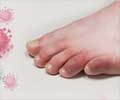Vitamin D helps the immune system in fighting against any kind of infection. There was a 23% difference in COVID-induced mortality between the people who had an adequate vitamin D level than those who did not have that, says a study.

‘Only 3% of the people who had higher levels of vitamin D died due to COVID-19. Sufficient levels of this vitamin also help reduce the inflammation of the body during the period of infections.’





“If vitamin D was low, it was correlated with severe disease and mortality in an independent manner. We know that people who had low vitamin D died more,” said Amir Bashkin, the director of the Endocrinology and Diabetes Unit at GMC. What makes Vitamin-D super powerful?
Vitamin-D is a well-known immunomodulator that supports the immune system in fighting against any kind of infection. This sunshine vitamin can also help reduce inflammation in the body by regulating the over-production of self-destructing pro-inflammatory cytokines of our immune system.
Can the deficiency of vitamin D make you vulnerable to COVID-induced death?
Advertisement
It is also important to note that a previous study conducted by doctors of Nizams Institute of Medical Sciences (NIMS) highlighted that people with vitamin-D levels of more than 55 ng/ml were less likely even to contract COVID-19. The findings also showed that the mortality was almost nil when people with vitamin-D levels of 60mg/ml developed SARS-CoV-2 infection.
Advertisement
The findings of the study were published in a peer-reviewed journal, The Jerusalem Post.
Source-Medindia














